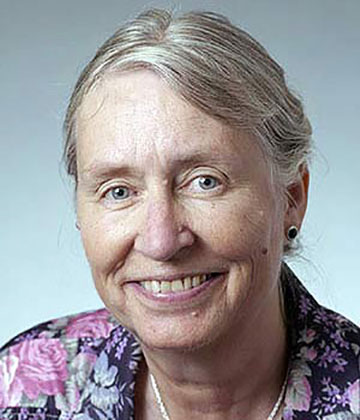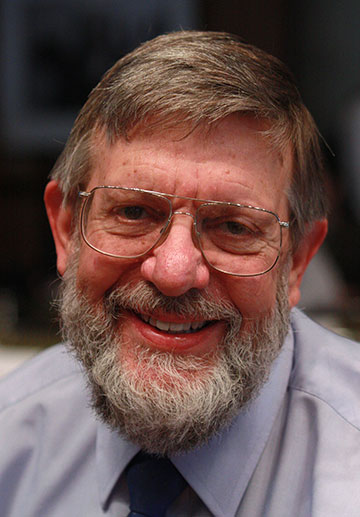
Courtesy of Elsa Garmire
Two OSA Honorary Members, 1993 OSA President Elsa Garmire, retired from Dartmouth College, USA, and Nobel laureate William D. Phillips, National Institute of Standards & Technology, USA, participated in a special professional-development session at the annual OSA Frontier in Optics + Laser Science conference on Monday, 14 September 2020.
Garmire and Phillips drew on their own experiences to share stories and advice about navigating a career in optics—covering everything from the importance of being broadly educated, confident and curious, to valuing time outside of work.
Beyond the science
Garmire kicked off the session by speaking about balance. Pursuing a career in STEM requires a certain dedication and passion for the field, she says—but a well-rounded life outside of STEM is just as important. Garmire shared that she was “not a geek.” Beyond her career, she dedicated time to studying subjects outside of STEM, playing in an orchestra and singing at church, and volunteering in professional societies.
The idea of pursuing a broad education rang true for Phillips as well. During his studies, he says, the most important thing he learned was how to write, because “if you can’t write, it’s really hard to communicate your scientific results.” As a researcher, Phillips explains, prioritizing life outside the lab is crucial to him. He believes that it’s very important to not be so devoted to your work that you completely ignore the other features in your life.
It’s okay to be unsure

Courtesy of Bill Phillips
Next, Phillips and Garmire tackled one of the great, looming questions that keeps many early-career professionals up at night: Am I good enough?
At the beginning of his career, says Phillips, he saw Garmire as a powerful and confident force in the scientific community. However, Garmire admits that she initially struggled with self-confidence, but learned how to be comfortable in her own skin during the 1970s feminist movement. “This whole idea of trying to be best is ridiculous,” Garmire says. Instead, she advises her students to first develop their own self-confidence by reaching for what they’re comfortable doing and then growing from there.
Ultimately, the speakers say—and as attendees of Monday’s “Overcoming Imposter Syndrome” session can attest—everyone in the field suffers from feeling insecure. But, Phillips and Garmire point out, it’s important to remember that most major discoveries are accidental.
“When a paper says we discovered this and it’s obvious, there’s a good chance they discovered that by accident while doing an experiment,” says Garmire. People are led to believe that everyone has it all figured out, she explains, when in reality even she had to work hard to hide her insecurities.
Fork in the road
Throughout any career, the OSA luminaries concluded, there are crossroads, and in the moment, a fork in the road can seem incredibly daunting. Still, Garmire and Phillips encourage early-career researchers to have no regrets.
Regardless of the path one chooses, “nobody makes all the right choices all the time,” says Phillips. Instead, he advises, it’s more important to focus on accepting where you are and striving to make the best of it. “If you decide something, then you [should] look for the very best thing you can do in that place” agrees Garmire. It’s easy to feel stuck when making a career decision, she points out, but it’s liberating to decide on a path and to dedicate yourself to being the best at whatever it is you’re doing.
In the face of major career decisions and challenges, say Garmire and Phillips, it’s normal to feel overwhelmed or insecure. Their advice: Be confident even if you have to “fake it,” always look for the best in an uncomfortable situation, and value life outside of work.
